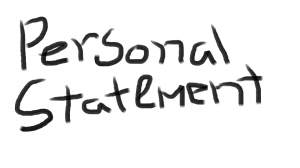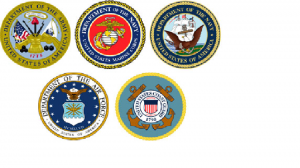Here’s my favorite quote on literature:
There’s been a lot of military TV shows, some good, some bad, and I decided to make a list of which ones I thought were the best. Let me know in the comments whether you agree or disagree?

5 Stars Earn Stripes. New show, but I like it because it reminds me of number 2 on this list—but more on that later.
Stars Earn Stripes premiered on August 13th, 2012, and is in its first season. The series is a reality TV show that follows a group of celebrities, accompanied by members of the United States Armed Forces and others, competing in various challenges for charity based off actual training exercises used by the U.S. military.
What’s Good: It’s a good show because it shows celebrities in a different light—going through the tough training of the military—and it raises money for charities. Plus, it’s a reality TV show so the military people are all real, badass, guys. And it’s interesting watching these intense soldiers deal with more delicate celebrities. Looks very promising.
What’s Bad: They could’ve gotten some better, more interesting, celebrities. Most of them I don’t even know who they are. Hopefully there’s a second season, and hopefully they get some better celebrities.

4 The Unit. Just started watching this show.
The Unit is off television now but it aired on CBS from March 7th 2006, to May 10th 2009. It was an American action-drama television series that focused on a top-secret military unit modeled after the real-life U.S. Army special operations unit commonly known as Delta Force.
What’s Good: Well, first off, it’s about Delta Force, and second off, Eric Haney, one of the founders of the real-life Delta Force, is an executive producer, and the show is based off his memoir. So the show is the real deal and isn’t just some shit thrown together by a bunch of civilians.
What’s Bad: The Worst part of the program is the military wives; they’re not painted in a good light at all, they’re SUPER annoying, and it makes their parts hard to watch.

3 MASH. Set the bar for all military shows.
MASH is off the air but premiered on September 17th, 1972, and ran until February 28th, 1983, the final episode received a record-breaking 125 million views. It was a military medical dramedy that followed a fictional medical hospital during the Korean war.
What’s Good: They did an excellent job of capturing the behind the scenes and peccadilloes of a hospital unit in a war zone. A lot of good comedy and since the show was a show that showed its politics it had a profound influence on American during its airing. The episode are still good to watch even all these years later.
What’s Bad: It’s an old show and has been off the air for a long time. Most people my generation have never even heard of the show, little alone watched an episode. Sometimes older shows can be harder to watch for a new generation because they won’t understand what’s going on/went on.

2 Combat Missions. Great show!
Combat Missions aired from January to April 2002, lasting only one season. It was a one hour long reality TV show hosted by former Navy SEAL Rudy Boesch. The show pitted four teams of highly-experienced military and police operatives against each other in physical challenges and “mission” scenarios. The mission scenarios has each team face off against the opposing “Shadow force” (not another team) using MILES gear in real-life combat situations.
What’s Good: For starters, it featured people, not actors, from some of the most badass organizations around: SWAT, Marine Recon, Navy SEAL, Army Special Forces, Delta Force, and even a former CIA spook. Watching some of the drama between these guys was awesome, and seeing how they handled each other in competition. These guys are the best of the best and it was great to be able to see them all working together.
What’s Bad: One of the guys on the show, A Navy SEAL, Scott Helvenston, went off to work for Blackwater after he was on the show, apparently he pissed off some of the wrong people and was killed while in Afghanistan. Also, a SWAT guy won the show, so it didn’t make the military guys look too good.

1 Band of Brothers. It was technically only a mini-series, but Band of Brothers was a great TV show!
Originally airing in 2001, Band of Brothers was a ten part, 11-hour television Word War II miniseries. The series fictionalized the history of “Easy” company (part of the 506th Parachute Infantry Regiment, 101st Airborne Division) from jump training in the US to the capitulation of Japan and the end of the war. The events portrayed are based on research and recorded interviews with the real Easy Company veterans.
What’s Good: It’s based on a true story, on a real unit. Incredibly well casted, scripted, and the production value is amazing. Everything about this show was great!
What’s Bad: It only lasted one season—The Pacific, is supposed to be a sequel, in a sense, and based on Marines during WWII, but I haven’t seen it yet; it’s on the to watch list, though.
UPDATED: I’ve finally seen The Pacific on HBO and it’s honestly a tough call between The Pacific and Band of Brothers. Both are amazing shows, incredibly well done, but I think I’m actually going to choose BoB over The Pacific, maybe it’s the army vet in me, but the end of Band of Brothers, still gives me goosebumps (go on YouTube and watch the clip: Band of Brothers, ‘gory, gory, what a hell of a way to die’).
If you’re looking to take a break from military TV shows and films, then check out the dark humored War Memoir, by Iraq veteran Michael Anthony. Civilianized is a must read for any veteran, or anyone who knows a veteran, who has returned from war.
“I wont soon forget this book.” -Mary Roach
“A must read.” -Colby Buzzell
“[S]mart and mordantly funny.” –Milwaukee Journal Sentinel
“Anthony delivers a dose of reality that can awaken the mind…” Bookreporter
Order your copy of Civilianized: A Young Veteran’s Memoir .
Lately, I’ve been getting a lot of comments, and emails, about my blog post: PTSD What to do When Your Spouse has PTSD. There are a lot of resources out there to help our loved ones with PTSD, but some things have changed since I originally wrote the article, and the article wasn’t as in-depth and helpful as it should’ve been, so an updated version is in order. (Also, since all of the comments and emails I’ve received have been related to PTSD for military personnel, this article will be in reference only to treatment of PTSD for active duty or prior service military personnel—although, I’m sure, it can apply to the populace in the civilian world also suffering with PTSD.)
With that said, I’ve also heard from a lot of vets that the services offered at the VA are severely lacking and not helpful. So it may work for some, but not for others.
Sometimes for vets, who are used to a certain tempo of physicality, and who aren’t used to sharing their feelings, it can be too odd and unwelcoming to have to sit down and suddenly talk about their feelings. The good news is that there are a lot of other options, and a lot of them are shown to work better than typical therapy.

 A good physical exercise that’s recommended for veterans suffering with PTSD is yoga. Yoga can be very strenuous and physically demanding, and is often done in heated rooms over 100 degrees, and at the end of every yoga session there is a fifteen minute period of meditation. With yoga a person will be able to combine two methodologies from the military’s mental toughness program. They will have the purely physical component of the exercise and the mental component of the meditation. It’s a win win.
A good physical exercise that’s recommended for veterans suffering with PTSD is yoga. Yoga can be very strenuous and physically demanding, and is often done in heated rooms over 100 degrees, and at the end of every yoga session there is a fifteen minute period of meditation. With yoga a person will be able to combine two methodologies from the military’s mental toughness program. They will have the purely physical component of the exercise and the mental component of the meditation. It’s a win win.The main thing to keep in mind when dealing with PTSD is that there ARE options. It’s not like after the Vietnam War when the military and spouses and soldiers didn’t know what was going on; we know what’s going on now and there ARE cures.
In this dark humored War Memoir, Iraq veteran Michael Anthony discusses his return from war and how he defeated his PTSD. Civilianized is a must read for any veteran, or anyone who knows a veteran, who has returned from war and suffered through Post-Traumatic Stress Disorder (PTSD).
“I wont soon forget this book.” -Mary Roach
“A must read.” -Colby Buzzell
“[S]mart and mordantly funny.” –Milwaukee Journal Sentinel
“Anthony delivers a dose of reality that can awaken the mind…” Bookreporter
Order your copy of Civilianized: A Young Veteran’s Memoir .
 A few months ago, I posted that I was applying to various grad school MFA programs; and after spending weeks researching how to write a good grad school personal statement, I wrote mine, and then wrote a blog post about how to write a personal statement. (Five Tips to Writing an MFA Personal Statement). Well, for an update, just to let you know, I got accepted into every grad school program that I applied for, so the techniques I wrote about work.
A few months ago, I posted that I was applying to various grad school MFA programs; and after spending weeks researching how to write a good grad school personal statement, I wrote mine, and then wrote a blog post about how to write a personal statement. (Five Tips to Writing an MFA Personal Statement). Well, for an update, just to let you know, I got accepted into every grad school program that I applied for, so the techniques I wrote about work.
I’ve decided to go to Lesley University, and hopefully in two years I’ll have an MFA in non-fiction creative writing.
I’m looking forward to my MFA journey, and I’ll be blogging and giving updates about grad school, and the writing life.
![]() Michael Anthony is an Iraq War Veteran and is the Author of: Mass Casualties: A Young Medic’s True Story of Death, Destruction, and Dishonor in Iraq.
Michael Anthony is an Iraq War Veteran and is the Author of: Mass Casualties: A Young Medic’s True Story of Death, Destruction, and Dishonor in Iraq.
Joining the Internet Meme of “Shit People Say…” a bunch of veterans made a hilarious, and often true, video of shit that civilians say to veterans. Check the video out.
[tube]http://www.youtube.com/watch?v=T4Esni1RbwU[/tube]
 MassCasualties.com was nominated for a military blogging award in the category of Veteran’s blog. It was a finalist but another great military blog won instead.
MassCasualties.com was nominated for a military blogging award in the category of Veteran’s blog. It was a finalist but another great military blog won instead.
Congrats to the rest of the Mil Blog winners and finalists!
 Looking back at the past, one of my dreams when I was a tenth-grader was to enter a prestigious college in the country and study medicine. Back then, my choices were Cambridge, Oxford and Imperial College. I’m now a student at a good medical school, although it might not be as great as the schools of my dream.
Looking back at the past, one of my dreams when I was a tenth-grader was to enter a prestigious college in the country and study medicine. Back then, my choices were Cambridge, Oxford and Imperial College. I’m now a student at a good medical school, although it might not be as great as the schools of my dream.
There was a time when I thought I could not enter a good college because of my grades. I’m a good student, but there were
occurrences that caused me to lower my guards and to become lax in my studies.
But why am I now a medical student?
The main reason why I am now studying a medical course is because I was able to convince the people manning the admission committee of my chosen university that I am suited to become a doctor.
How? Just through my personal statement. When I submitted my application to the UCAS, prime agency in charge of admissions in the UK, I made sure that I included a very convincing and emotion-moving personal statement. It was my only chance to prove that I am suited to become a medical student!
Well, I did focus all my personal feelings into my personal statement. That was the only way that I could justify my grades in high
school and persuade the university to accept me. Of course, I have to support my statement with facts. I also focused on parading my skills and strengths, on how I could use them to succeed in this course. I also outlined my hobbies and interests that show the attitude that I could use to spring myself to success.
I think those were the secret why I’m now a medical student. I would not mind if you pattern your statement after mine!
Additional Posts:
 Where: 317A W. 33rd St. (in Manhattan—33rd and 8th Ave near Penn Station), New York, NY
Where: 317A W. 33rd St. (in Manhattan—33rd and 8th Ave near Penn Station), New York, NY
When: Monday, March 26, 2012 at 7:00 pm – 10:00 pm (all guests are requested to arrive by 6:45 pm)
Cost: Free of charge
The Landmark Forum is a 3.5-day seminar centering on a unique and seldom-studied area of practical philosophy known as “ontology.” In independent research, more than 94% of participants surveyed reported that The Landmark Forum made a “profound and lasting difference” in their lives. In addition to the benefits participants expected to receive, they reported entirely unexpected benefits, including:
• More satisfaction, peace of mind, happiness, and enjoyment in their jobs, studies, and other pursuits.
• Better relationships with co-workers, families & friends.
• Renewed ability to create career opportunities; clarity to make important decisions regarding one’s future career.
• New ability to be fully self-expressed; freedom from resentment and regret.
 In this evening you’ll have the opportunity to learn about the Landmark Forum, connect with other Veterans and potentially discover some of the decisions you’ve made in your past that, the knowledge of which, will have a profound impact on your future.
In this evening you’ll have the opportunity to learn about the Landmark Forum, connect with other Veterans and potentially discover some of the decisions you’ve made in your past that, the knowledge of which, will have a profound impact on your future.
Your family members, friends, co-workers are absolutely invited as well.
As indicated in the flyer, this Special Introduction is being held on Monday, March 26th, at 7:00 PM (arrive at 6:45 PM), at Landmark Education’s Manhattan location: 317-A West 33rd St. (between 8th & 9th Aves.) (closer to 8th Ave., on the North/uptown side of 33rd St.)
To reserve a seat, email Karen Aramino at: karamino@landmarkeducation.net
CLICK HERE TO READ MY REVIEW OF THE LANDMARK FORUM